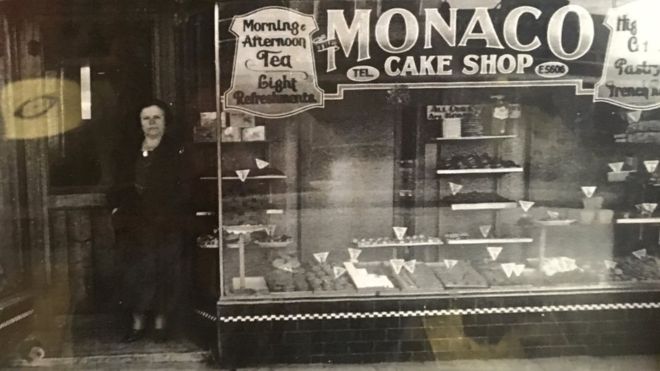Numbering 50,000, many are descendants of Holocaust survivors and refugees from eastern Europe who settled here in the 1930s and 1940s, and they live mostly in the city’s inner south-east.
There they built a gamut of institutions: synagogues, schools, retirement homes as well as kosher restaurants and butchers.
The area is also home to a number of Jewish bakeries famous for making the best bagels in town and drool-worthy cakes based on age-old Polish, German and Hungarian recipes.
“The Jewish bakeries of Melbourne have strong traditions that hark back to homespun origins and offer a culinary link to the places many had fled to make new lives,” says Damien Green, an author and educator at King David, a Jewish day school in Melbourne.
In 1931, Pearl Lavine, a Jewish migrant from Poland, opened the Monaco Cake Shop in central Melbourne. There she sold sweets like kooglhoupf, a layer cake infused with chocolate, and rugelach, cream cheese pastries filled with honey and nuts.
In 1934, Mrs Lavine moved to bayside suburb St Kilda to cater to the influx of Jewish migrants settling there.
But people came from all over the city to ogle at the colourful cakes displayed in the window of the rebranded Monarch Cake Shop.
The concept was so successful that three of her apprentices quit and opened their own cake shops on the same street.
Read the article by Ian Lloyd Neubauer on BBC News.

